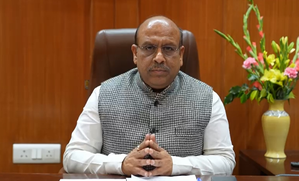Legal wrangles, niggling questions ensure Aarushi lives on in public memory
New Delhi, Jan 13 (IANS) The perplexing case of the unsolved murder of Aarushi Talwar has captivated the nation for more than 15 years now.
In the dawn of May 16, 2008, Aarushi Talwar, about to turn 14, was discovered lifeless in her Jal Vayu Vihar, Noida home. Her throat was slit, and her head was brutally assaulted.
The family’s live-in help, Hemraj Banjade, initially considered the prime suspect, was found dead on the flat’s terrace a day later, with a similarly gruesome fate.
The Noida Police suspected an insider job, stressing the ‘surgical precision’ of the murders. Initially, the Talwars’ former help, Vishnu Sharma, was implicated. Later, Delhi Police joined the investigation.
Six days after Aarushi’s discovery, police hinted at an honour killing, focusing on her parents, Rajesh and Nupur Talwar, both dentists.
Rajesh was arrested on May 23, 2008, for the double murder. Amid public debate, the case transitioned to the Central Bureau of Investigation (CBI).
In June, Krishna Thadaraj, an assistant at Rajesh’s clinic, was arrested.
The Talwars underwent lie detector and narco-analysis tests. In December 2010, CBI submitted a closure report due to insufficient evidence, naming Rajesh as the prime suspect. However, no charges were filed.
Five years later after the murder, on November 25, 2013, CBI judge Shyam Lal convicted the Talwars, citing them as the “killers of their own progeny.”
Life imprisonment was awarded, but on October 12, 2017, the Allahabad High Court acquitted them, citing a lack of evidence.
The CBI filed an appeal against the acquittal in the Supreme Court, prolonging the unresolved double murder case that continues to captivate attention.
In a nutshell, the case of Aarushi Talwar raises concerns about law enforcement mishandling, lacking a thorough investigation into the unanswered question: “Who killed Aarushi Talwar?”
The sessions court convicted the Talwars of her murder, imposing life imprisonment. In response, the Talwars appealed to the Allahabad High Court, which, in 2017, overturned the sessions court’s verdict and acquitted them.
–IANS
spr/ksk




